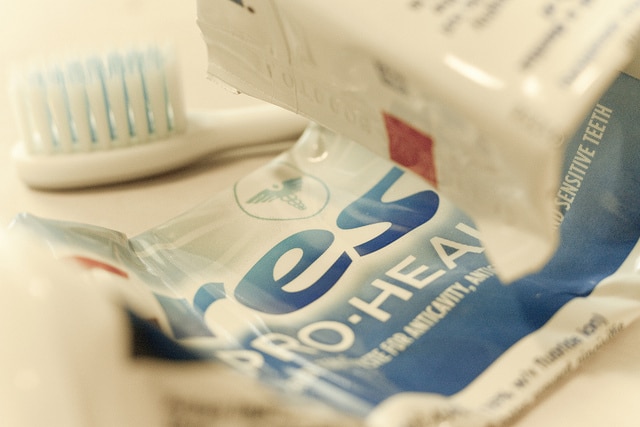Over the past few years, a large number of oral hygiene and different personal care products have featured small, plastic beads for aesthetic purposes. But recently, an outcry has been made regarding these polyethylene beads, prompting dentists and oral health companies alike to put an end to their widespread use. But why are these FDA approved beads so bad for oral health? Read ahead to find out why so many people are outraged regarding these colorful beads and what large companies are doing about it.
Putting an end to polyethylene
While they may look pretty inside your tube of toothpaste, polyethylene beads can negatively impact both the mouths of users and the environment. With these colorful plastic beads not being biodegradable and unable to be disintegrated, dentists have found them hidden inside tiny cracks in the teeth and gums. Trapping dangerous bacteria and developing gingivitis, polyethylene beads can even aid in the development of periodontal disease.
Additionally, polyethylene beads can be harmful for the environment. Since they can’t be sorted out in the water supply, these beads have been found in large bodies of water and can severely harm marine creatures. Illinois recently banned the use of slightly larger polyethylene beads used in beauty products for this exact reason. Will oral health companies be next in line to help keep people and the environment safe?
Making a difference
Upon hearing that it’s products contain a substance that contains no nutritional or dental value and is harmful to people and the environment, Crest has vowed to put an end to the use of polyethylene beads in their toothpastes. Pledging to phase out the use of plastic beads by March 2016, Crest hopes to appease customers by removing the substance outright from their products.
But while some companies are moving away from polyethylene beads, the American Dental Association (ADA) continues to have no problems with their use in oral care products. Citing a lack of evidence regarding whether or not these plastic beads are safe in dental care, the ADA stands behind polyethylene and claims that they aren’t a health concern.
If you are concerned that your toothpaste may be harmful to your mouth or the environment, seek out toothpastes that do not contain polyethylene beads. If you’d like a professional opinion on the subject, ask your dentist whether or not they recommend products featuring polyethylene. For more information on proper oral hygiene or for a knowledgable dentist in Las Vegas, contact BDG today.

